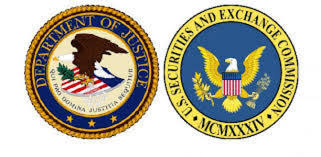SEC FCPA Settlement: J&F Investimentos Bribery Scheme (Part III of V)

The SEC settled with J&F Investimentos (“J&F”) for approximately $27 million. Unlike the DOJ settlement, the SEC included JBS and Joseley and Wesley Batista in its enforcement action. The factual predicate for the settlement involved a different focus from the Justice Department’s Statement of Facts. J&F’s principal owners, Joesley and Wesley Batista, each agreed to pay a civil penalty of $550,000.
The conduct involved Joesley and Wesley Batista, and J&F’s majority-owned and controlled subsidiary, JBS, the largest meat producer in the world with annual revenues in 2019 in excess of $50 billion. Starting in 2009, J&F sought to expand its holdings by the acquisition of US meat companies, including Swift Premium and Pilgrim’s Pride. In September 2009, J&F sought to acquire 64 percent ownership of Pilgrim’s Pride for $800 million.
Between 2009 and 2015, J&F paid approximately $144 million in bribes for the benefit of then Brazil’s Finance Minister, Guido Mantega, who directed payments to various political campaigns. Through such bribe payments, J&F was able to secure $2 billion in finacing from Banco Nacional de Desenvolvimento Econômico e Social (“BNDES”), the Brazilian National Development Bank, in order to finance the acquisition of Pilgrim’s Pride (“Pilgrim”), which was then in Chapter 11 bankruptcy protection.
Pilgrim’s common stock is traded on the Nasdaq market. From 2009 to 2012, its common stock was traded on the New York Stock Exchange (“NYSE”). The Batistas served as directors for Pilgrims between December 2009 to June 2017. Six of the nine Pilgrims board members also served on JBS’s board. JBS’ had American Depositary Shares (“ADRs”) listed on the OTC market.

After the acquisition, Wesley Batista served as CEO of JBS and Chairman for Pilgrims, and Joesley Batista served as CEO of J&F and a member of the Pilgrim’s board. JBS and the Batistas carried out the bribery scheme using JBS operating accounts which included funds funds obtained from Pilgrim through intercompany transfers, special dividends and other means. Pilgrim’s books did not reference the financial transactions intended to fund the bribery payments for the benefit of Mantega. Pilgrim’s management was unaware of the intended use of such funds for bribery payments.
The Batistas, individually and through J&F and JBS, exercised significant control over Pilgrims. In addition, Pilgrim shared office space, overlapping board members and executives, accounting and SAP systems, as well as internal accounting controls and policy documents with JBS and its US affiliate, JBS USA.
During the period 2009 to 2015, and without informing Pilgrim’s management, the Batistas continued the bribery scheme using in part JBS operating accounts which contained funds that were commingled with Pilgrims funds.
In 2012, at the direction of Mantega, Joesley Batista made a $5 million sham loan to a company partially owned by Mantega’s son. The sham loan was executed with the assistance of the New York City bank.
The Batistas never disclosed to Pilgrim’s accountants and independent public accountants that certain funds transferred to JBS were commingled with funds used to pay bribes to Brazil government officials. The Batistas, J&F and JBS paid the bribes from JBS operating accounts using a variety of mechanisms, including fake invoices, official election donations and cash.

As a result, the Batistas, J&F and JBS caused Pilgrims books and records to inaccurately record the financial transactions, which in turn, caused Pilgrim’s failure to maintain an adequate system of internal accounting controls.
Pilgrim did not enact a Code of Conduct until 2015, over five (5) years after being acquired by J&F. As of 2018, nine years after acquiring a controlling interest, J&F was in the process of implementing a formal anti-corruption compliance policy. Pilgrim had no compliance personnel. The Batistas executed the Code of Conduct certificate but never received any anti-corruption or compliance training.















